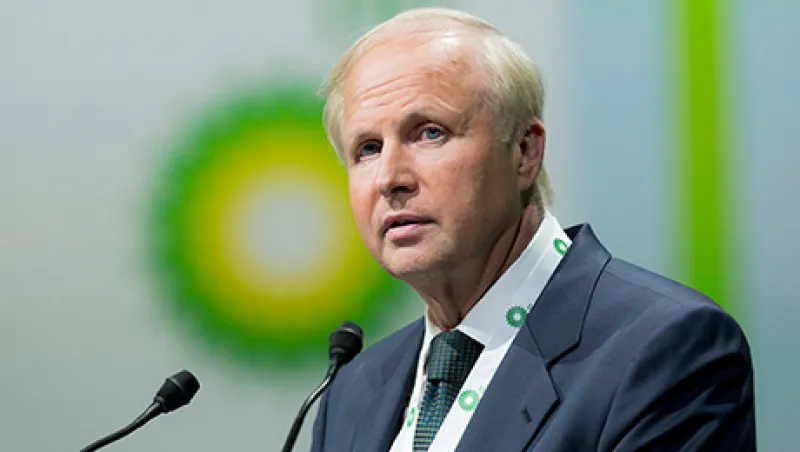Financial markets are sending conflicting signals. For the first time in history, a U.S. Treasury Department auction for three-month bills resulted in a yield of 0 percent on Monday afternoon. This willingness by investors to forgo returns in exchange for security and liquidity comes when the timing of a rate hike by the Federal Reserve is in doubt, though not its inevitability, and while concerns over dimming prospects in Europe and Japan suggest that further easing by central banks there is possible. Meanwhile, yields picked up slightly for 10-year U.S. Treasury notes as riskier assets rose in trading Monday and Tuesday morning with an increasing number of investors discounting what central bankers are saying publicly in favor of positioning for an extension of ultra-accommodative policies around the globe.
Management shakeup at DuPont. On Monday, Wilmington, Delaware-based chemical and agribusiness giant DuPont announced the departure of Ellen Kullman, the chair of the board of directors and the chief executive, as the firm lowered earnings guidance for full-year 2015. The board has not selected a permanent successor. Kullman has been a focus of criticism by activists including Nelson Peltz’s Trian Fund Management, which narrowly lost a proxy contest over board seats. Kullman has resisted calls to break the company up in pursuit of shareholder value.
BP reaches record settlement with U.S. On Monday, global oil producer BP announced that a settlement had been reached with the federal government and five states over the Deepwater Horizon oil spill in the Gulf of Mexico. The settlement, at $21 billion, is the largest ever secured by the Department of Justice and resolves all civil federal claims against the company.
Aussie central bank stays the course. Policymakers at the Reserve Bank of Australia Tuesday opted to keep the benchmark cash rate at an historic low of 2 percent during the bank’s monthly meeting as they look for signs of an impact of a falling Australian dollar on inflation. Analyst consensus is that Governor Glenn Stevens and his colleagues will cut rates further in coming months if depressed commodity prices continue to weigh on Australian exports.
Google takes stake in Bloomberg competitor. Alphabet, the Google holding company, took a stake in the latest round of financing for Symphony Communication Services, according to media reports. Symphony, which is valued at $650 million in this equity round, is a secure online communications platform designed to compete with Bloomberg among financial-services professionals. The startup had been initially financed by a consortium of firms led by Goldman Sachs, and including Morgan Stanley and BlackRock.
German factory orders stumble. August factory order figures released by the Deutsche Bundesbank on Tuesday were weaker than consensus analysts’ forecasts, with a decline of 1.8 percent for the month following a revised contraction of 2.2 percent in July. Some analysts expect that a decline in export orders spurred by slowing demand in emerging markets may now be exacerbated by interruptions at Wolfsburg, Germany-based Volkswagen because of an ongoing pollution-emissions scandal.
Brewing mega-merger in limbo. On Tuesday, SABMiller announced financial results for the fiscal second quarter that included a fall in revenues resulting from declines by emerging-market currencies balanced by a rise in total volume. The release comes before a deadline next week for a formal bid from Anheuser-Busch InBev. SABMiller’s board has reportedly rejected an initial, informal offer exceeding $100 billion from Anheuser-Busch as insufficient.
Portfolio Perspective: Clear Misses and Dysfunction
The clear misses of economic growth for 2015 are poised to drive price action in 4Q. The policy responses and ability of central bankers to provide their asset puts for free via QE and easy money look stretched. The FOMC liftoff has another excuse for delay after the Friday unemployment report. The rate of job growth in the U.S. is slowing sharply in 2015 3Q and many wonder if that [will] continue through 2016 and make the FOMC look to new tools for growth. The U.S. situation means trouble for the rest of the world as well. The sole engine of growth in the world for much of 2014 is suffering from emerging-market turmoil and many see Japan and Europe following along as developed markets find [that] weaker global demand matters. The gloom of missing the market expectation in economics may also find trouble in the next few weeks in equities as earnings for 3Q roll out and with a 4 percent drop in earnings expected, the bar is low, but perhaps not low enough to match the weaker growth. The USD and its trend up is blamed for much of the drama in the U.S. and in earnings, but the trend isn’t so clear when looked out over the bigger picture — with many thinking that the real problems are in the dysfunction of rates and banks. The focus on central banks to squelch financial turmoil is also an issue leaving markets wondering where fair value really lives and if it can be found when the targets are clearly being missed. Either we need more arrows — like Abe in Japan — or we need more tools like Yellen in the U.S. The pressure on everyone in 4Q — investors, central bankers and corporate CEOs — is to actually hit their targets.
Robert Savage is the chief executive officer of CCTrack Solutions in New York






